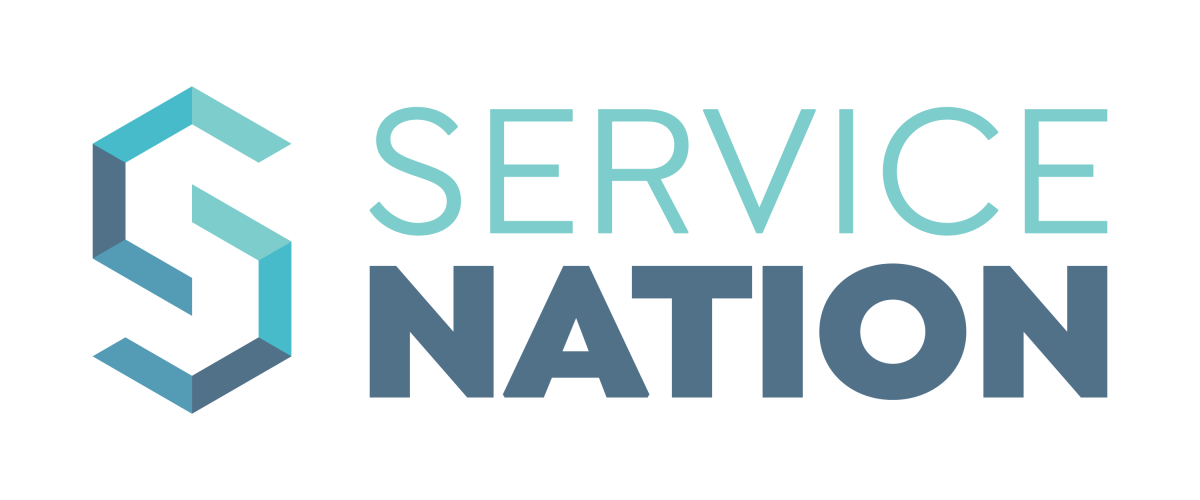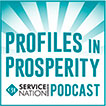I get to serve with Mitch on the Service Nation Board, and I’ve developed a great appreciation for Mitch. You’ll never know about all his awards and his accomplishments If you just talk to Mitch. He never brags on himself, he never engages any self-promotion. He’s one of those guys that listens carefully, doesn’t talk a lot, but when he says something it’s really well-considered, thoughtful, and insightful advice. When Mitch talks, we listen. In 2015, I was honored to interview Mitch on stage in front of a large audience, what follows is an excerpt from that interview. The subject at this point of the interview was about acquisitions. Mitch has successfully acquired and integrated many companies, so I asked him about that.
On these acquisitions, you’ve gone through a number of models, you’ve said that you’ve added about $15,000,000 in acquisitions. That’s a lot of acquisitions. So at some point in time, you guys have learned how to bring companies into your company. And so what can you share with us about what works and what doesn’t work? Because I think that’s pretty tricky. I mean, you get a company that’s, I don’t know, let’s say one and a half million, it’s probably being run primarily by one guy. Does he come and work for you? or does he exit the business and you get his team? Does his team stay with you? Or do you just buy the assets and say adios?
Mitch Cropp: A combination of all. Well, first of all, an individual of that size is pretty much, is, one person is a key person in that company, for a million and a half or so worth of sales. And now, history, he normally will not last much longer than 90 days to six months. He’s always been by himself or runs his own company and for some reason, others do come back and have to work, and report to somebody, and having to do this, and do it this way, changing whatever. That’s a challenge for the principal to do that and we know that we’ve experienced that. We do have one guy working for us right now. We purchased his company about seven years ago and he’s still with us.
But he’s got a certain position and he likes that, and it’s working out for him. The thing that we really want is the people. The customer base and the techs, is really what we want to be able to put our hands around. Normally out of a million and a half company, you’ll get 8, 10 techs, 7 techs. You may be lucky if you salvage half of them because if any of them had been thinking about going anywhere or doing anything, that sort of opens a door for them to shop around. So you come in there real quickly with your best people, your best HR people that you got, and you go through your company policy and procedures, you check the existing ones. And anything that you’ve got, that is, looks to be a little bit better than the other, you just hound on it, and you just build it up.
And so if you’ve got a good reputation around town, that helps too. Because I think that’s why we’ve been able to keep so many of them. It is because they know who we are. We are a leader in the industry. We are a trainer in the industry. We do what we say we’re going to do and I mean that. We empower our people to do, and they must do what they say they’re going to do. And it’s cost me sometimes, it’s cost me for what I’ve done. But, the issue of the personnel, we interview by the assets. Assets are not a problem because if they are new and current, you can use them, so that’s not a problem. The vehicles: it’s not a problem buying the vehicles, because half the vehicles rarely get over four or five years old before they’re gone, so we turn them. But there are some inventory issues sometimes. It’s really how you sit down in front of people and what they want.
David Heimer: So, with the tax, do you guys pay a stay-on bonus to get them to stay or anything like that?
Mitch Cropp: No, we tried that one time and after a few years, that didn’t mean anything. So we just said, that’s not necessary to do that. We really show them the value of being with Crop Metcalf, what we have to offer and we pushed that very hard. And we sort of have taken the approach, for the next 10 years, that you have to believe in us. When you come to work for us, we don’t believe in you. You’ve got to believe in us. It’s a two-way thing guy. We wouldn’t have 300 people now in this organization if they didn’t like us. And you really have to go through that very strongly and make them aware that they are joining the best of the best. And we always talk about that, I mean, you talk to my people, that is, they are the best. They know they’re the best. We recognize them all the time, stroking them on the back. You’ve got to do that.
When you’re constant, we’ve got a program called Jostle, and it’s an internal email set up, where we share ideas or share things amongst our own people. And it is every day if we got a customer compliment, man, it’s on there, and the text picture flies up. And we just promote that tremendously, it’s to let them know we care about them. And if you let them know you care, and I’ll sometimes be in there working six, seven o’clock at night, when they come in and off the street. They’re like, “Mr. Cropp, you are still here?” Yeah. I mean, I let them know. Sometimes I’ve done it purposely when I was at a much smaller company. I hung around and was the first one in. You’ve got to do some of the things that other people don’t want to do. And some of them you don’t want to do, but you got to do them.
Our training program has been accepted by the state of Maryland and Virginia, as an apprenticeship program. If they come to our courses, and then go to the state, either one of the states, and take the test and pass it, they have the apprenticeships. And the course apprenticeship is a four-year program. So, now we’ve got people that are in their fourth year. We started about four years ago, got approval, and started doing it. So we start you out, and when you come in, and we look for these vo-tech kids, that come out and because the teacher has told them, they’re going to make $40 an hour and all of that stuff. So you have to overcome that pretty quick, and then you start putting them through school. And like I said, some of it we paid for and the other, they have to belly up to the weekend stuff. All the Saturday school training is on them, during the week, if we ask you to attend a class, we compensate you for it. But we have a tech, we have a Maintenance 1, Maintenance 2 Program. We have Tech 1, Tech 2, Tech 3, Tech 4, and apprenticeship programs. And we’ve got two full-time trainers, at this point, that are doing that, and are keeping track of it.
And other than that, we would really be tech-poor. Because the pool out there is not great. You will, normally, maybe reach somebody if they get upset with somebody else. We try to grow from within, and I’m old school and I’ve always worked with my hands and what have you. And I’ve always thought you need to come up through the ranks. Now I’m being taught by my sons that it don’t have to be done that way now daddy. We can hire an outside manager, or we can hire somebody who’s got the credentials and whatever and that will work. They don’t even have to know our business. Trade and {inaudible 09:35} and never work, but they got great people. So it’s working.
David Heimer: So that was an excerpt from the interview with Mitch Cropp, in 2015. We’ll have more gems from Mitch in the podcast in the future. I’m David Heimer, this is Profiles In Prosperity. Thanks for listening.





 (877) 807-0869
(877) 807-0869 Member Login
Member Login

